Are we entering the end of globalisation?
China didn’t obey the rules of globalisation but reaped all the benefits. Now it’s stone motherless dead as a motivating force in the West. Where do we go from here?
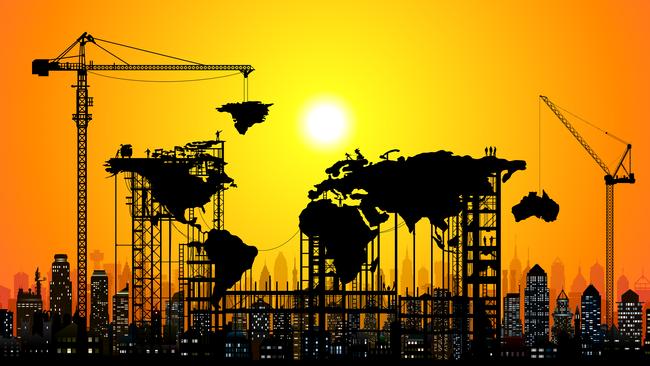
We are living through a hinge moment in history. The era of globalisation is coming to an end. Is globalisation dead? Maybe not quite dead, but like a Covid virus it’s mutating into something new and different. Deglobalisation, decoupling, democracy versus dictatorship, Cold War 2.0, national resilience economies, national security conservatives, renewed military alliances, grey zone conflict, regional wars, free markets lacking advocates or post-globalisation – whatever you call it, we are rushing into the third era of history after World War II.
Era one, which began as soon as Hitler and Imperial Japan were defeated, was the bipolar Cold War: the United States and its allies against the Soviet Union and its empire. This was when the US created the so-called rules-based liberal international order – the United Nations, NATO, the International Monetary Fund, the World Bank. Later on, with help from the US, regions inaugurated their own pro-US organisations, the European Union and, much later, bodies such as APEC.
They all believed in globalisation, which was another term for US power. The Soviet Union stood outside globalisation. The object of Western policy was to triumph over the Soviet Union while avoiding nuclear war. The West was successful.
That led to Era Two, the unipolar era, when the US, for a time the hyperpower, was alone at the top and sought to underwrite a much more genuinely global liberal order than had ever existed before. Free trade was linked to free societies. Economic integration, followed by social integration, would solve all geo-strategic problems. Economic freedom would be contagious; peaceful evolution would lead to liberty’s triumph. Francis Fukuyama called it the end of history.
The problem with this era was that the winner was China. Beijing didn’t obey the rules of globalisation but reaped all the benefits of everyone else obeying the rules. It got the fastest economic growth of any big society in history. More than a million American jobs migrated to China. Beijing could subsidise any strategic industry, rig the rules of investment so that it got the intellectual property of any Western company located there, use the openness of Western societies to enable traditional and cyber espionage to steal technology and gallop up the technology ladder, all the while engaging in the greatest peacetime military build-up the world has seen.
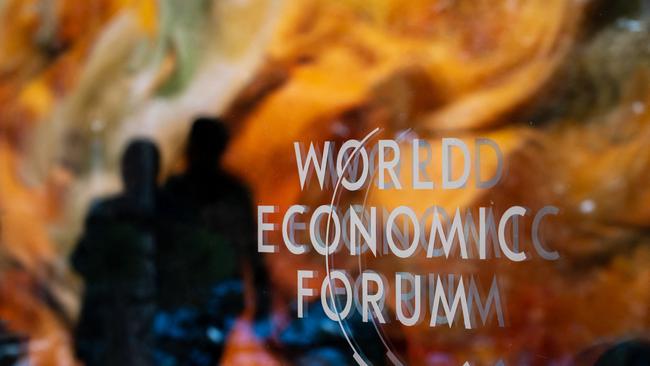
Now we are entering a new era. We haven’t got a good name for it yet. Post-globalisation seems too negative but globalisation is stone motherless dead as a motivating force in any Western economic or political argument.
This doesn’t mean the world is moving back to 1950s-style protectionism, much less 1930s-style protectionism. But it is going to find a new balance between free trade, open economies, national resilience, not giving your adversary your best technology or your critical infrastructure, securing supply chains and military readiness which means both hi-tech kit and sufficient mass to deter attack. It’s going to see national security, military alliances and regionalism come back to the centre of how nations behave.
This is not all down to China. There are four factors, four huge historic dynamics, driving the world away from globalisation. These are: China; Russia’s war in Ukraine; Covid; and the energy crisis in Western societies brought about by attempting rapid decarbonisation.
Take them one by one. When China was a small part of the global economy, the US and some of its allies could pursue free-trade policies on a no-regrets basis. Even if China cheated in restricting imports and putting all kinds of non-competitive rules around foreign direct investment, we, the US and its allies, still got cheap Chinese products and overall China was still a big market. Australia did well because our big exports to China were unprocessed commodities – iron ore and coal in particular.
Two things changed. China got too big an economy – now about two thirds the size of the US though it may not catch the US in size for many years – to give that kind of advantage to. And it became an aggressive strategic competitor building military capabilities designed to invade Taiwan, occupy the South China Sea and cripple US forces in Asia.
So it’s just plain strategic insanity for the West to help Beijing dominate hypersonics, artificial intelligence, quantum computing, microchips, telcos, machine learning, battery technology and the other hi-techs determinants of the future. Yet even now, with all the decoupling talk, since 2000 US venture capitalists have invested more than $US50bn ($72bn) in China.
The Chinese government essentially produced Donald Trump, the first anti-globalisation president. He was chaotic in his rejection of globalisation but he used tariffs and technology boycotts to begin decoupling. He wanted industry back in the US. Joe Biden has continued Trump’s policies. US allies and friends have selectively applied similar measures, Australia, Canada, Japan, Britain, even India have all banned Huawei from their 5G networks. Many nations restrict Chinese investment in critical infrastructure. This is fully bipartisan in the US, almost the only issue that is.
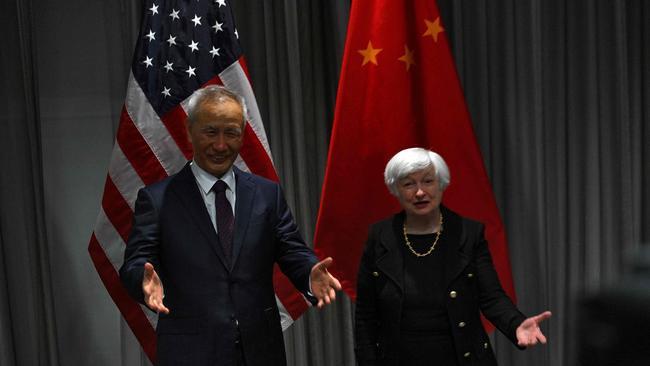
The second factor driving deglobalisation is Russia’s war in Ukraine. Trump and other US leaders tried to limit Europe’s energy dependence on Russia. The Germans in particular thought the Americans paranoid. Although no-one would call the Europeans free marketeers, their energy dependence on Russia perfectly embodied a free market, globalisation outlook. Russia has a comparative advantage in natural gas and oil, certainly compared with Western Europe. The income Russia earns that way should give it a big incentive not to destroy its commercial, political and military relationship with Europe. Everyone’s a winner.
But guess what? Russian leaders, especially Vladimir Putin, had not drunk the globalisation elixir. They had other priorities. Russia invaded Ukraine anyway, thinking it would be bloody but quick and Western sanctions would exhibit their normal hypocrisy and lack of staying power. Everyone got that wrong because of the magnificent resistance and heroism of the Ukrainian leadership and Ukrainian people.
But no one can any longer pretend that globalisation works if you’re dealing with a supplier like Russia. So energy markets will be deglobalised and Europe will decouple from Russia which will cling ever more tightly, as a loyal client, to China. This, incidentally, will reinforce the bipolar nature of the post-globalisation, international system.
Factor three is Covid. This persistent, wretched virus was an enormous shock to global supply chains. The old ideal was just-in-time supply, so you didn’t waste money storing merchandise. That’s no good any more. Just as the Ukraine war shows that the West doesn’t have enough weapons or ammunition even for a regional war, Covid showed that all kinds of essential items in the West depend on one or two suppliers, who might be unreliable. They might be unable to supply, they might make their own needs a priority over the needs of their customers, or they might decide to hold up supplies as an act of hostility.
At the same time, Covid caused Western governments to abandon all fiscal restraint, thus producing a bout of global inflation. This also reinforces insecurity. People want critical products made and stored at home, or made and stored by a reliable friend. Comparative advantage will be a much lesser consideration.
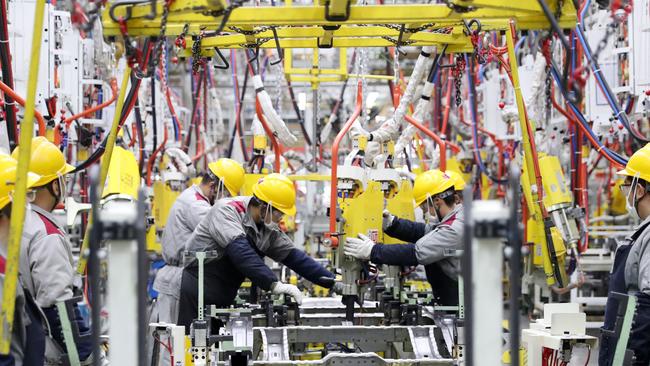
And the final factor, which plays into the other three, is the almost panicked, desperate rush to decarbonise among Western nations. This is not happening in Asian nations. China is still building coal fired power stations apace. But in Western Europe, North America and Australia, New Zealand and a few other pro-Western nations, there is something approaching a seemingly desperate and rapid switch to decarbonise. All rhetoric aside, the plain truth is this is enormously expensive. Carbon-neutral energy technology is not remotely competitive in price, for a total system, compared with fossil fuels. This means almost every Western nation is undergoing an energy price crisis, exacerbated by the Russia/Ukraine war and the Western commitment to decarbonise.
That’s a big argument for another day. But it has this quite precise impact on globalisation. If as a society you are going to pay the massive costs of decarbonisation, and if you believe this is righteous, then you will be determined that everyone else should pay those costs as well. Thus we are seeing a wave of implicit and explicit carbon protectionism sweeping across the global economy.
These four factors not only drive deglobalisation, they interact with each other in complex and unpredictable ways.
So where do we go from here?
I asked three senior Australians with intimate policy experience of globalisation to react to the general thesis of this article.
Former prime minister Tony Abbott says: “The problem with globalisation is that its focus was on short-term cost minimisation over everything else. We’re now much more aware of the national security, as well as the economic, dimensions of freer trade, especially where it concerns countries which are now so obviously our strategic competitors.”
Peter Varghese, a former head of DFAT with a storied career at the top of Australian policy, tells me: “It’s still an open question whether we end up with a decoupled but still global economy. This depends on whether we see a further hardening of US and Chinese positions. It’s driven by geopolitical factors accelerated by Covid.
“It’s one thing for geopolitics to drive a slowdown in globalisation and an inward-looking turn in economics. But that then through lower economic growth can feed back into geopolitics, including through the rise in populism.
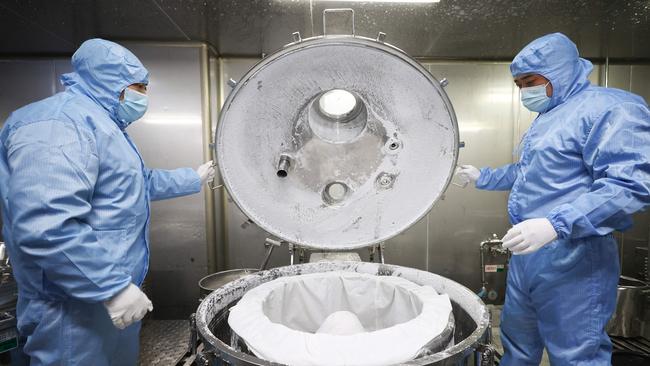
“There is a global trend towards policies such as self-reliance and rising protectionism that we know from history makes us poorer, not richer. A poorer world is a more unstable world. The politics of globalisation has played out badly in many countries. Australia is an exception.
“I’m very uncomfortable with policies that try to thwart Chinese economic growth rather than building mechanisms that constrain and deter China from acting in unacceptable ways.
“We’re going to have to find ways to re-prosecute the case for an open economy.”
Justin Bassi, head of the Australian Strategic Policy Institute, also has a long history of advising governments on foreign policy. He says: “There are significant geostrategic implications from the move away from globalisation. After the intense competition of the Cold War, the US and its allies put all their eggs in the globalisation basket and thought trade was an inherent good.
“Economic development is vital, but where a trade relationship becomes a dependency it can produce instability and enable coercion.
“Interdependence was thought to reduce the likelihood of conflict, but both China and Russia have shown that conflict can happen where there is a power imbalance. Europe’s energy dependence on Russia did not deter Russian aggression and only solved to weaken European resolve.
“China has shown that it can engage in conflict and intimidation below the level of war, including by leaning on economic relationships. While many countries are debating the pros and cons of decoupling from China, Beijing itself has gone down that road without using the word.
“Its strategic objective is to be technologically sovereign but have everyone else dependent on its technology.”
Overall, Australia was a winner from globalisation, certainly economically. I think it was a tremendous mistake to allow our car industry to collapse, but this was certainly in line with ideas of comparative advantage and globalisation. Now we need to rebuild a manufacturing capability if we can.
But while the new era will be challenging for us, we could well emerge as winners in the deglobalisation era as well. Our reliability as a supplier of energy, commodities and agricultural exports will be highly valued, so long as we don’t allow green madness to destroy our advantage in these industries. And the products we export to China – iron ore and coal – are not hi-tech so our allies won’t ask us to stop those exports, unless military tension becomes very grave.
There are other substantial opportunities awaiting the post-globalisation era as well. The US has redefined its National Technological and Industrial Base to include Australia, Britain and Canada – all the Five Eyes except New Zealand. This is the real significance of AUKUS. The nuclear subs, I’m afraid, are so far away they will not in themselves play any strategic role for us in probably the next two decades.
But we have the opportunity – if we’re smart enough technically, economically, socially, diplomatically and politically – to become a significant part of the US-led supply chain in a significant number of critical technologies.
Globalisation is dying, but global opportunities remain for us. Moving away from globalisation could mean consciously choosing more security and a little less income, but it can also mean new economic opportunities.
That’s assuming, of course, that the ragged new bipolar order, with so many nations confused and internally polarised and the rules of the road as clear as mud, can avoid debilitating warfare.




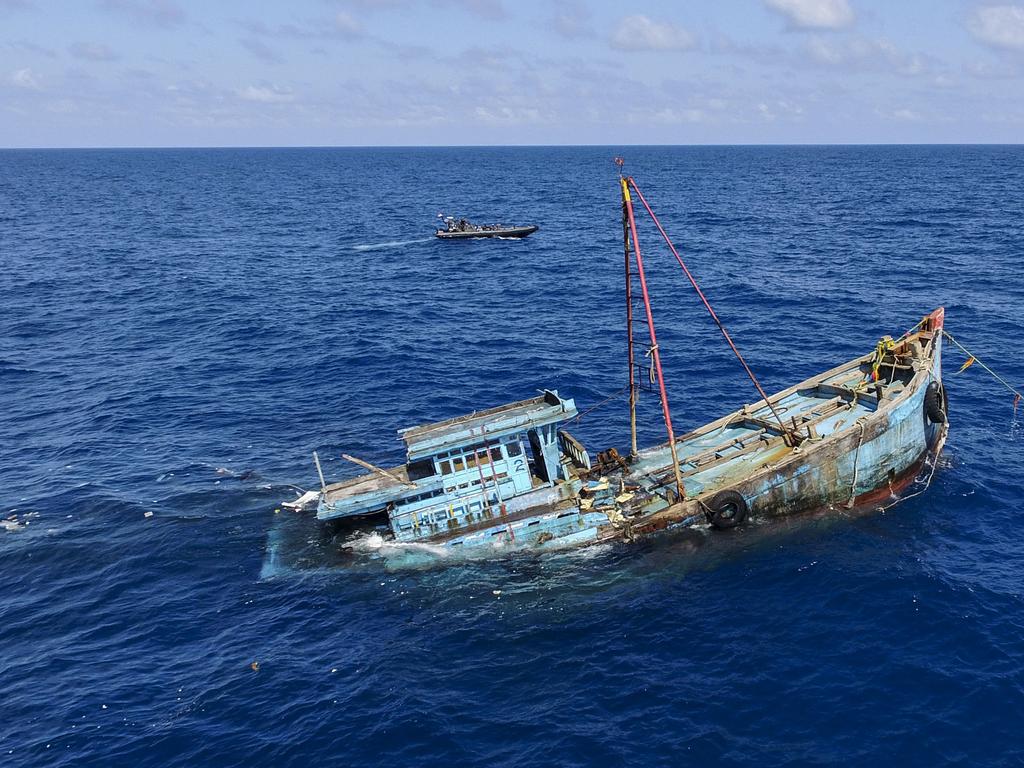

This was the week that China’s population began to fall, China’s economic growth rate slumped to its lowest level in decades and China’s Vice-Premier, Liu He, told the exquisitely timed and mostly fatuous World Economic Forum at Davos that Beijing was committed to economic liberalism, free trade and globalisation. Any of those three stretch your credulity at all?